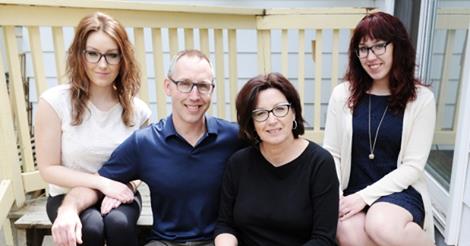Dementia, also known as senility, is a broad category of brain diseases that cause a long term and often gradual decrease in the ability to think and remember that is great enough to affect a person's daily functioning. Other common symptoms include emotional problems, problems with language, and a decrease in motivation. A person's consciousness is not affected. A dementia diagnosis requires a change from a person's usual mental functioning and a greater decline than one would expect due to aging. These diseases also have a significant effect on a person's caregivers. A longer definition comes from Wikipedia.
- When Stroke Becomes Dementia. Dr. Amy Brodtmann Lecture
- Stroke, White Matter Disease and Alzheimer's Disease:
Can Canada Avoid an Epidemic of Dementia?
- OT Home Visits - Dementia vs Stroke - the Process and Outlook is
Very Different!!
- My Theory on Dementia, Blood Pressure & Stroke - Dr. Eric Berg DC
- Stroke and Dementia
- Stroke and Dementia: What Lessons for Us
- A Deadly Interaction: The Connection Between Stroke and Dementia
- Cut Your Risk of Dementia & Stroke
- Living With Dementia and Stroke or Coronary Heart Disease:
Information for Consumers
- Nun Study-Brain Health/Alzheimer's/Dementia/Stroke/Brain Exercise
- Dementia, Stroke Risk Linked To Hand Strength, Walking Speed
- Weekly Columnists
- Musing: 85 with Dementia? Good Chance It's HS-AGING and Not Alzheimer's
- Sunday Stroke Survival: Hog Tied
- Caregiver: Bob's Artwork
- Jester: That was the Last Year Santa...
- TED Talks - Alanna Shaikh: How I'm Preparing to Get Alzheimer's
- Rick Mercer Report: Boston Christmas Tree & Ontario Medical Marijuana Plan
- Laid-Back Admin: Text + Image -> Original Link?
Saturday News | Future Topic
--------------+---------------------------------------------
Jan/09/2016 | Bobath (NDT - Neuro-Developmental Treatment)
Jan/05/2016 | Emotional Recovery
Dec/26/2015 | Christmas - A Cappella Quartet / Quintet
Dec/19/2015 | CADASIL Syndrome
--------------+---------------------------------------------
Jan/09/2016 | Bobath (NDT - Neuro-Developmental Treatment)
Jan/05/2016 | Emotional Recovery
Dec/26/2015 | Christmas - A Cappella Quartet / Quintet
Dec/19/2015 | CADASIL Syndrome


























